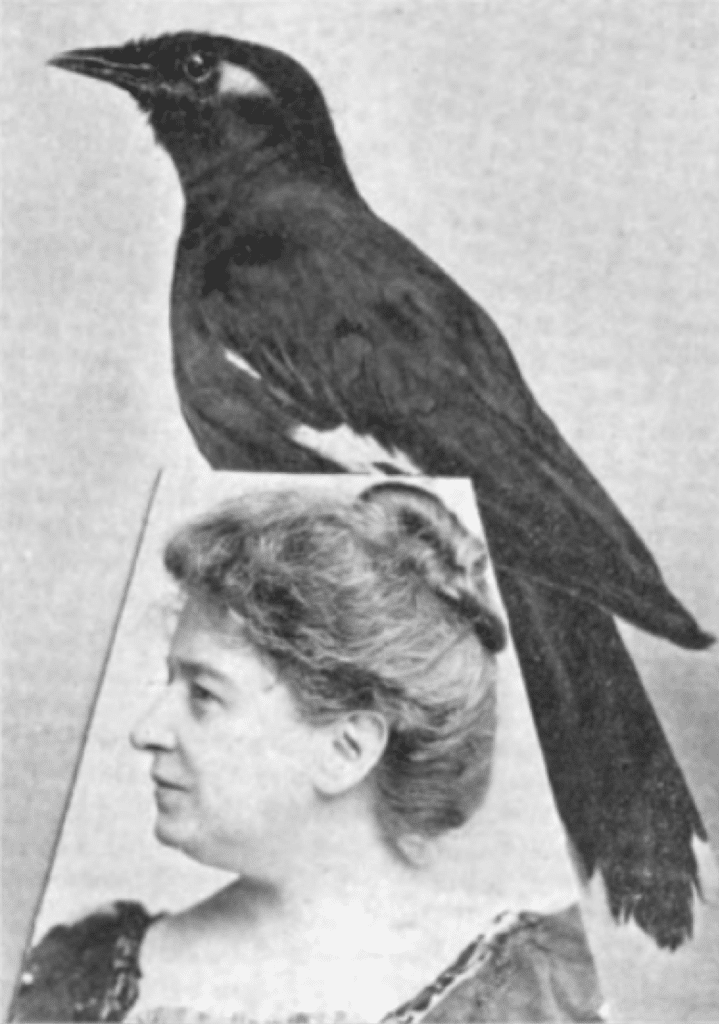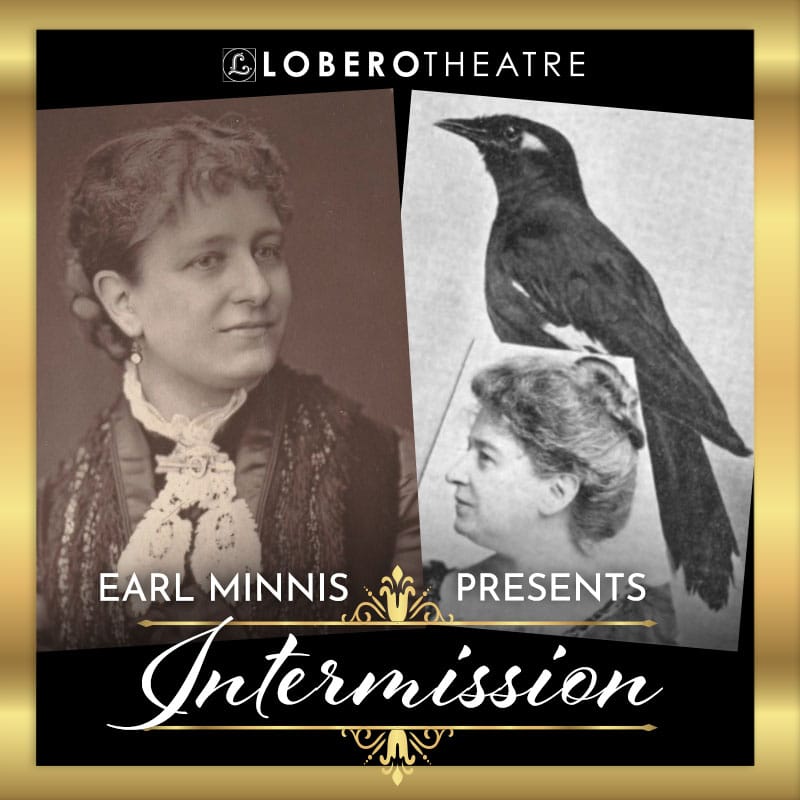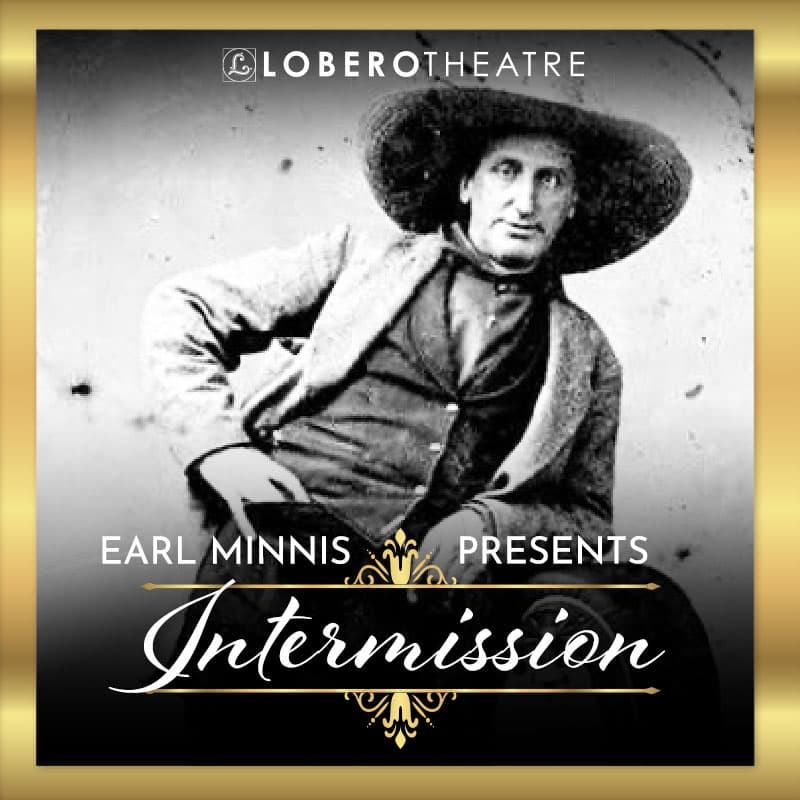Over its nearly 150 year history, the Lobero Theatre dressing rooms have hosted thousands of talented and eccentric performers.
But it’s likely there has never been anyone, or anything, as colorful as the duo of opera singer Emma Thursby and her precocious, multi-lingual Mynah bird.

Emma Thursby began her musical career singing with church choirs in Boston and her native Brooklyn, New York. She rose to international fame by her late twenties and performed with acclaimed musicians around the world, such as the famous American bandmaster Patrick Gilmore. She even toured the nation with Mark Twain at outdoor Chautauqua’s! The Chautauqua movement in the late-1800’s was the equivalent of the modern-day TED Talk. Rural Americans looking for cultural stimulation and intellectual inspiration gathered under large outdoor tents for weeklong retreats of lectures, performances, and conversations. In her performances with Mark Twain, Thursby sang while Twain read poems.
In 1878, Emma Thursby made her London debut. Her voice was described as having bell-like clarity, flexibility, and remarkable range. But of equal interest to the press and her growing fan base was her ever-present traveling companion – a remarkably intelligent Mynah bird.
“Mynah” as the bird was known, sang in five languages – English, French, German, Malay, and Chinese – and could play piano songs like “Home, Sweet Home” by walking on the piano keys. Mynah traveled the world with Thursby, and though he never took to the stage, Mynah developed fame that eventually superseded that of his human companion.
On the night before Emma Thursby’s Lobero performance, the Los Angeles Times wrote that Mynah was present at the reception for Thursby and entertained guests with his singing and speaking antics.
In her memoirs, Thursby eulogized Mynah.
I am certain he was able to understand us, and we were able to carry on coherent conversations. For example, I once told someone he was born in India. He interrupted and said, ‘I’m an African.’ He repeated it in German. We never caged him except when traveling. At home, he had the run of the house. He went with us on many tours. During the day at home, he would fly down to the park and play with the children, coming home for meals like a human.”
Sources:
- https://en.wikipedia.org/wiki/Emma_Cecilia_Thursby
- https://virtualvictorian.blogspot.com/2014/10/emma-thursbys-astonishing-mynah-bird.html
- https://www.newspapers.com/image/380060256/?terms=%22Emma%2BThursby%22%2Bbird




